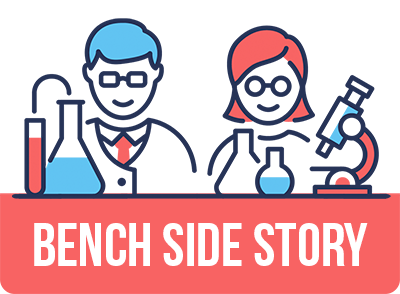South Australian Health and Medical Research Institute, also known as SAHMRI has had significant impacts in various areas over the past ten years, and this year is celebrating its 10 year anniversary with a week of events.
Ahead of the anniversary, Executive Director, Professor Maria Makrides spoke to Bench Side Story about 3 achievements in the past 10 years that have had significant impact
- International leadership breakthroughs in leukaemia research
- Culturally appropriate Indigenous health research and clinical care
- Omega 3 fatty acids as a preterm birth prevention
Looking ahead, SAHMRI is not standing still, and the newly built, and when fully installed, Australian Bragg Centre for Proton Therapy and Research will be Australia’s first proton therapy centre and the first of its kind in the Southern Hemisphere.
The Centre will occupy the ground floor and three below-ground levels of the Australian Bragg Centre building which has recently been completed on the eastern side of the distinctive SAHMRI building on North Terrace, Adelaide.
The centre will also be an integral part in a global network undertaking proton therapy research.
Proton therapy is a precise, non-invasive radiotherapy that can destroy cancer cells while minimising damage to surrounding healthy tissue including vital organs.
As a relatively new treatment option and one that remains expensive and not widely available, proton therapy has only been validated against a small range of cancers. The technology is potentially beneficial in treating many other diseases, but more research is needed in these areas to prove its efficacy.
SAHMRI represents an exciting and unique statewide concept, bringing together basic and translational research, South Australia’s three universities and the health system. SAHMRI works in collaboration with its partners to provide a clear focal point for health and medical research, including paving the way for new partnerships, innovative research projects and improved health outcomes.
The career opportunities at SAHMRI for researchers ranges from early career stage to recognised experts in their fields. Nothing unique with that, but the ability to validate discovery makes SAHRMI a unique work environment.
According to Executive Director, Professor Maria Makrides, “The culture is characterised by being fast, focused, friendly, flexible, and fun, which has fostered innovation, collaboration, and the ability to take risks and learn from both successes and failures to make advancements quickly.”
You Might also like
-
Links investigated between poor sleep and onset of dementia
Watch Samantha Bramich, a PHD candidate at the Wicking Dementia Research and Education Centre, University of Tasmania talk on identify the prevalence of rapid eye movement sleep behaviour disorder (RBD) in Tasmania and how poor sleep contributes to the onset of dementia and other diseases.
-
Role of metabolic dysfunction in advanced prostate cancer
Dr Gunter was drawn to the area of prostate cancer research and the intersection between chronic metabolic disorders and their emerging relationship to cancer. Her strengths include expertise in the metabolic syndrome, insulin signalling and metabolism, and she has a demonstrated record of successful and productive research projects in metabolic research where she now applies her efforts to understanding the role of metabolic dysfunction in advanced prostate cancer.
-
Visceral pain and the gut-brain axis
Professor Stuart Brierley is Director of the Visceral Pain Research Group, Director of the Hopwood Centre for Neurobiology, and Theme co-Leader of Lifelong Health at the South Australian Health and Medical Research Institute (SAHMRI).
Prof Brierley is an international expert on the ‘gut-brain axis’ and chronic visceral pain mechanisms. Current investigations are on a individual cell type called the enterochromaffin cell, and it helps signal pain and anxiety from the gastrointestinal tract to the brain.



